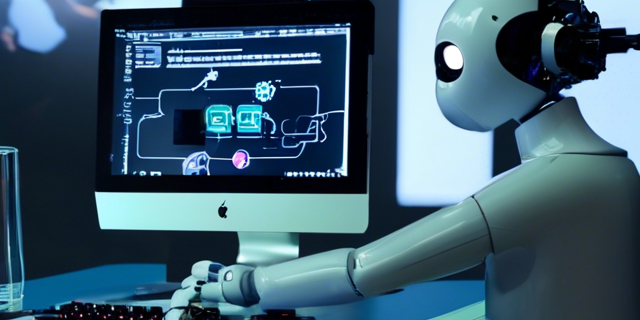Demystifying AI: A Beginner's Guide to AI-Driven Technology

In recent years, artificial intelligence (AI) has emerged as a transformative force, revolutionizing industries and reshaping the way we live, work, and interact with technology. Despite its growing prevalence, AI remains a complex and often misunderstood concept for many. In this beginner's guide, we'll demystify AI, explore its core principles, applications, and implications, and provide a comprehensive overview of AI-driven technology.
At its core, artificial intelligence refers to the development of computer systems capable of performing tasks that typically require human intelligence. These tasks encompass a wide range of capabilities, including perception, reasoning, learning, and problem-solving. Unlike traditional computer programs, which follow predefined instructions, AI systems can analyze data, adapt to new information, and make autonomous decisions.
AI can be categorized into two main types: narrow AI (also known as weak AI) and general AI (also known as strong AI). Narrow AI is designed to perform specific tasks or functions, such as image recognition, language translation, or recommendation systems. General AI, on the other hand, aims to replicate human-level intelligence across a wide range of domains, exhibiting the ability to understand, learn, and reason across diverse contexts.
AI-driven technology relies on a diverse set of tools, algorithms, and frameworks to enable intelligent behavior and decision-making. Machine learning, a subset of AI, focuses on the development of algorithms that allow systems to learn from data and improve over time. Popular machine learning frameworks include TensorFlow, PyTorch, and scikit-learn, which provide developers with powerful tools for building and training AI models. Additionally, natural language processing (NLP) libraries like NLTK and spaCy enable computers to understand and generate human language, facilitating applications such as chatbots, sentiment analysis, and language translation. Computer vision algorithms, such as Convolutional Neural Networks (CNNs), enable machines to interpret and analyze visual information, enabling applications like facial recognition, object detection, and autonomous driving.
AI-driven technology has permeated nearly every aspect of modern life, with applications spanning a wide range of industries and domains. In healthcare, AI is being used to diagnose diseases, personalize treatment plans, and analyze medical images with unprecedented accuracy. Financial institutions leverage AI for fraud detection, risk assessment, and algorithmic trading, enhancing operational efficiency and mitigating risks. Retailers employ AI-powered recommendation systems to deliver personalized shopping experiences and optimize inventory management. Transportation companies are exploring AI-driven solutions for autonomous vehicles, traffic optimization, and predictive maintenance, revolutionizing the way we travel and commute.
Despite its potential benefits, AI adoption also presents a range of challenges and limitations that must be addressed. Ethical concerns, such as algorithmic bias, privacy infringement, and job displacement, raise important questions about the responsible development and deployment of AI systems. The complexity and opacity of AI algorithms pose challenges for interpretability and accountability, making it difficult to understand and audit their decision-making processes. Additionally, concerns about data privacy and security underscore the need for robust regulations and ethical frameworks to govern AI development and deployment.
Looking ahead, the future of AI-driven technology holds immense promise and potential for further innovation and advancement. Breakthroughs in deep learning, reinforcement learning, and other AI subfields continue to push the boundaries of what's possible, unlocking new capabilities and applications across diverse domains. As AI technologies become more accessible and democratized, we can expect to see increased integration into everyday products and services, empowering individuals and organizations to harness the power of AI for solving complex problems and driving societal progress.
artificial intelligence represents a paradigm shift in how we interact with technology and tackle some of the most pressing challenges facing society today. By understanding the fundamentals of AI, exploring its applications and implications, and engaging in discussions about ethics and responsibility, we can harness the transformative potential of AI-driven technology while ensuring its benefits are equitably distributed and responsibly managed. As we continue to demystify AI and unlock its full potential, we embark on an exciting journey of discovery and innovation that promises to shape the future of humanity for generations to come.

